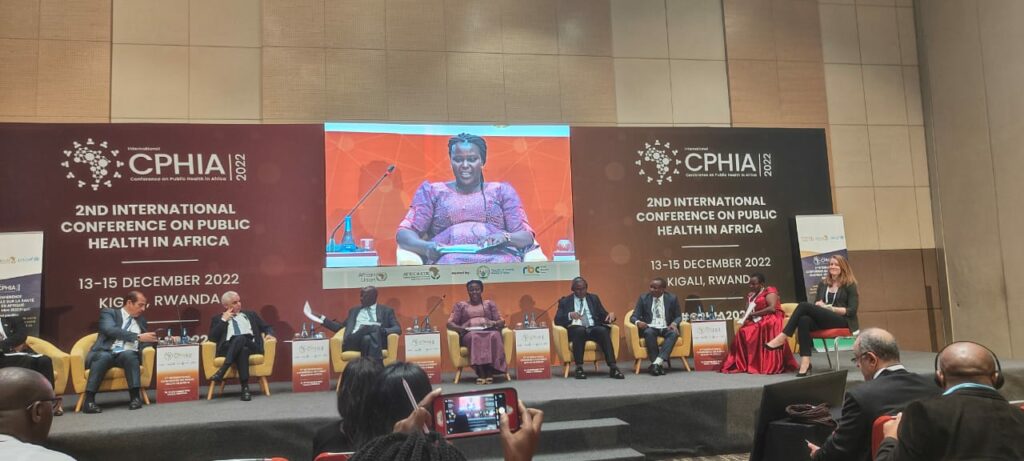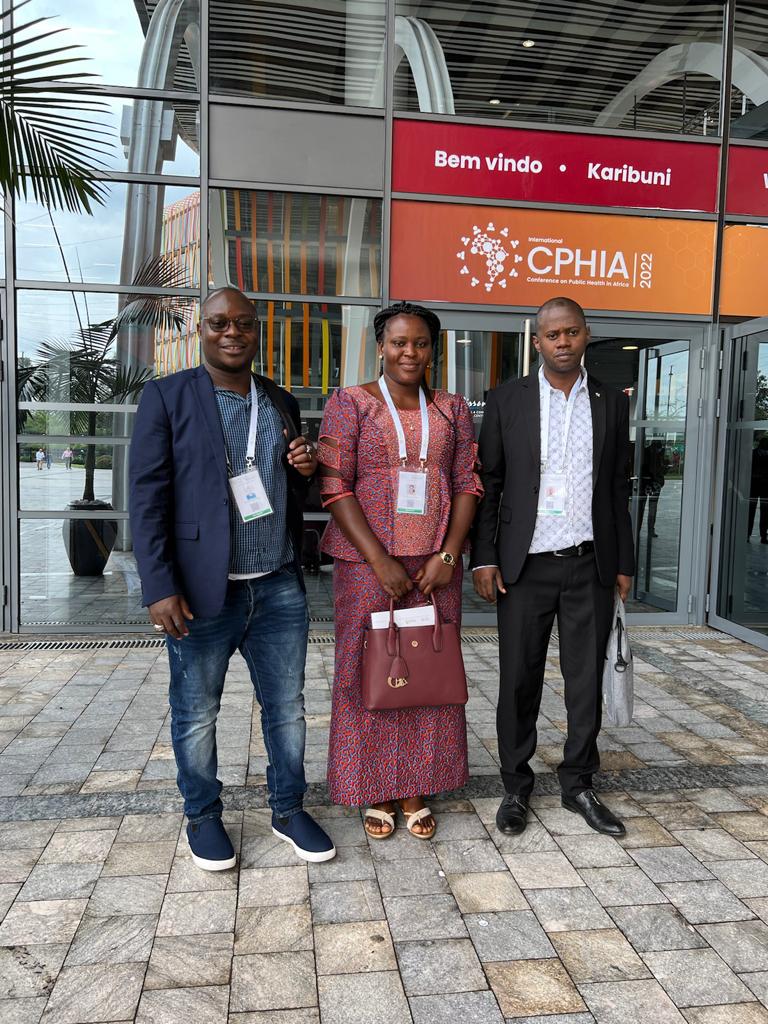On December 12 2022, I boarded a plane for the first time and traveled to Kigali, Rwanda. I was invited to speak at the International Conference on Public Health in Africa about why professionalized Community Health Workers are the essential foundation of a sustainable and resilient health system.
I shared my expertise as a Community Health Worker and my personal story in front of an audience of ministers, policymakers, donors, and global health leaders. By telling the story of a child I saved after diagnosing and treating him for malaria, I explained how my work is key to building strong and resilient healthcare systems. I also advocated for fair pay and good working conditions for all Community Health Workers. Sitting at the center of the stage, and surrounded by men in suits, I overcame fear and self-doubt to speak on behalf of my community, my patients, and my colleagues.

A seat at the table
I felt true joy when Émile Bobozi, Integrate Health’s Program Director, asked me to speak on behalf of Integrate Health at an international conference. I thought, if a Community Health Worker from the small community of Kpindi can speak at a global event, really anything is possible. Who would have thought that someone like me who spends her days walking around in the community on dirt roads would one day walk across a global stage to share her story?
I overcame many hardships to get where I am today. Realizing my dream to work in healthcare and becoming a Community Health Worker was not easy. My community was resistant to the idea of having me as a Community Health Worker and circulated various rumors. But I earned their respect and built trust-based relationships. Working through those hardships and gaining their trust and respect put me in a unique position to have open conversations. That access to knowledge and information makes people like me essential to building strong and resilient health systems.
Yet, Community Health Workers are too often excluded from strategic discussions that influence our work, and from global convenings where major stakeholders meet. We are the backbone of primary healthcare systems and the first point of contact when someone is sick. More than any other health provider, we experience the challenges and opportunities our communities face. Thus, no one is better placed than us when it comes to speaking about community healthcare.
During the event, I said that if governments are serious about building resilient health systems that are truly accessible to all, Community Health Workers’ input and leadership is paramount. Professionals like me, when given the opportunity to take part in global health conversations, will shift the conversation towards equity and inclusion, helping us all achieve Universal Health Coverage. On this note, I would like to shout out CHIC’s Speaker Bureau for securing seats for Community Health Workers in global events. Initiatives like these carry our voices where it really matters.
Looking back

Today, I’m thrilled and feel revigorated by this experience. I am proud that I overcame my fears, and spoke my truth. I almost got scared. But then I thought, be strong. You can do it. My voice matters too.
I learned a lot taking on this challenge. I learned how to promote my work, advocate for Community Health Workers, and how valuable people like me are. My proudest moment was when a representative from the Moroccan Ministry of Health walked up to me after the panel to say congratulations and give me her business card. That was the highlight of my week.
There is however one thing that I regret. Throughout the week I met and saw many African country delegations, but no Togolese representatives. I hope that next year my country will be present so they can hear all the great ideas and lessons learned that were shared about improving the working conditions of the Community Health Workforce.
For every conversation on community health, a Community Health Worker should speak
People like me should be given more opportunities like these to share our stories and have our voices heard. It is us who talk to patients every day, who ensure better access and higher quality of healthcare, and who see where the gaps are. Hearing our voices is not just a matter of panel diversity, but it is the key to understanding what issues communities face and how to fix them.
Community Health Workers’ insights are invaluable, and our expertise should not be overlooked. Therefore, every time someone talks about community-based healthcare, a Community Health Worker should be in the room. How else are we supposed to make good, evidence-based decisions?
